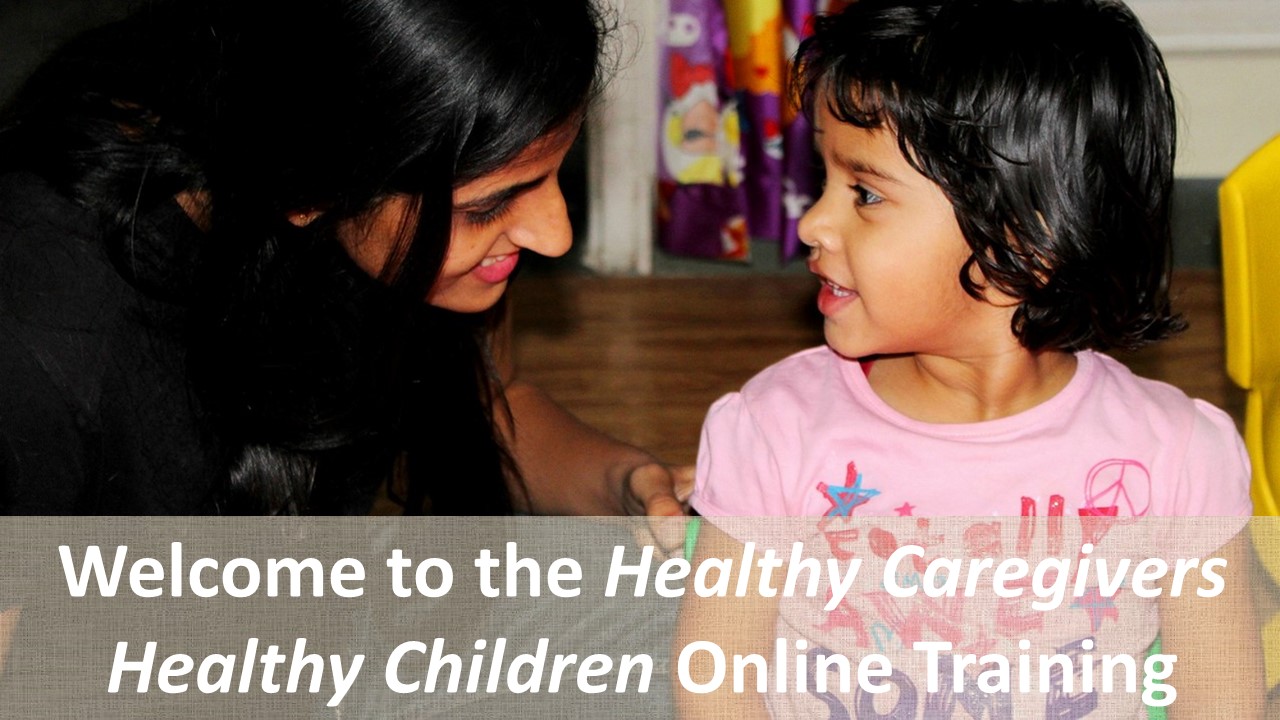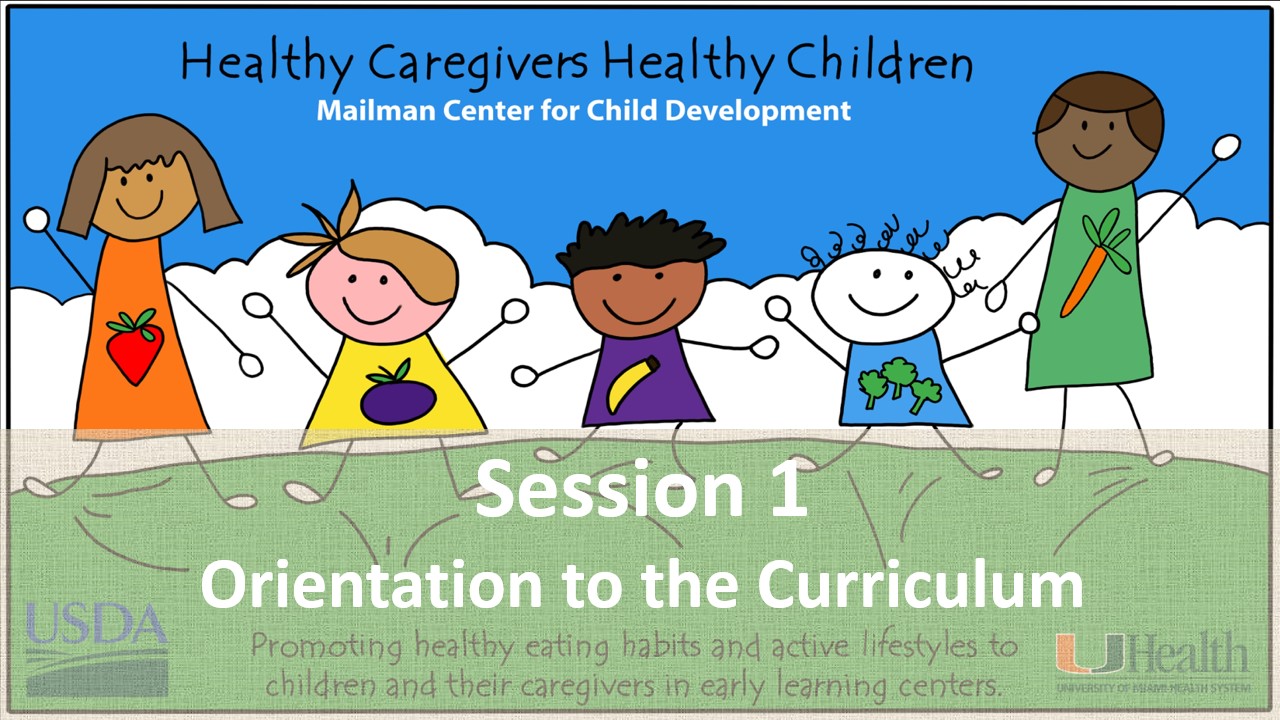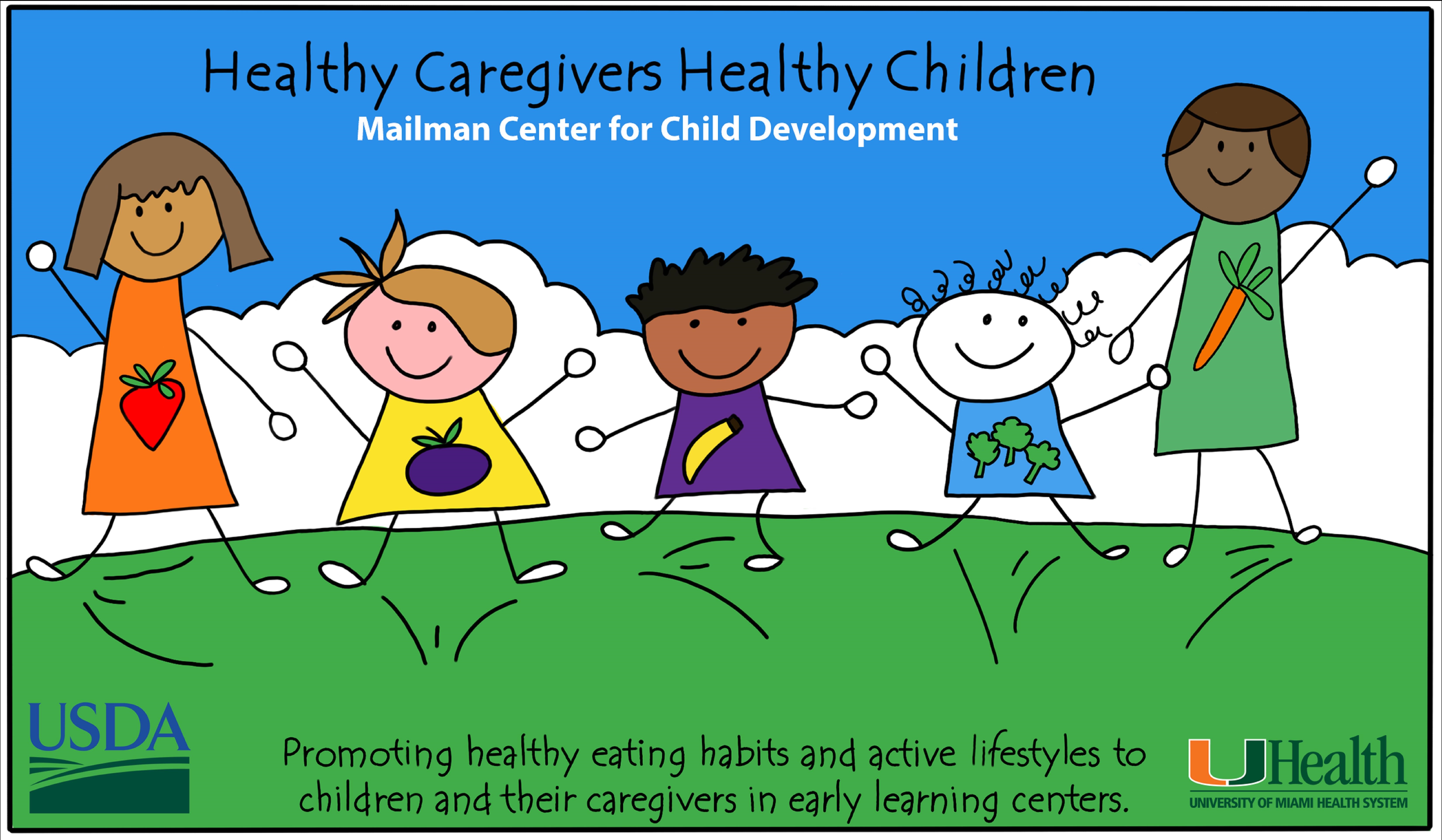
Many unhealthy dietary and physical activity habits that cause obesity are established by the age of five. Approximately 70 percent of children in the United States are currently enrolled in early child care facilities, making this an ideal setting to prevent childhood obesity. The Healthy Caregivers Healthy Children training will provide you with policy tools and lessons you can use to help the children in your care get a healthy start.
Course Objectives
After completing the 6 sessions in this online course, early childhood professionals will be able to
- List the four major ECE policies covered in the Healthy Caregivers Healthy Children curriculum
- Lead preschool children in a variety of structured physical activities throughout the day
- Explain to preschool children the benefits of eating a balanced diet including healthy fruits, vegetables, grains, proteins, and dairy products
- Decrease or eliminate screen time in their child care centers by replacing it with alternate activities
This course is organized into 6 sessions. Use the checklist below to make your way through course content and track your progress.

